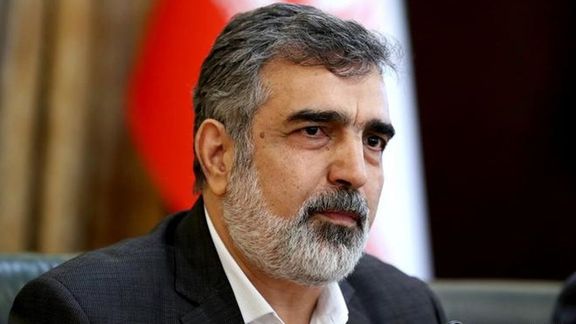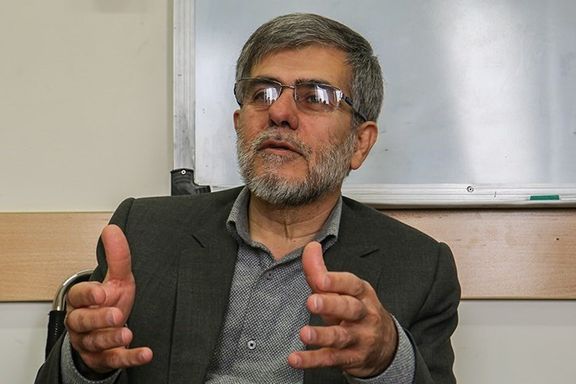Iran Spokesman, Parliament Deputy Criticize UN Nuclear Agency

The spokesman for the Atomic Energy Organization of Iran, said Tuesday Tehran faced “excessive” demands from the International Atomic Energy Agency (IAEA).

The spokesman for the Atomic Energy Organization of Iran, said Tuesday Tehran faced “excessive” demands from the International Atomic Energy Agency (IAEA).
In comments reported by the ISNA news agency, Behrouz Kamalvandi said Iran’s degree of cooperation with the IAEA, the United Nations agency, had been constrained by parliamentary legislation passed December 2020 to the ‘safeguards’ level required by the Nuclear Non-Proliferation Treaty (NPT).
IAEA monitoring would be extended to that required by the 2015 Iran nuclear deal, including implementing the ‘Additional Protocol,’ the spokesman said, once United States sanctions were eased and the 2015 agreement restored.
Kamalvandi’s remarks comes as Iran weighs up the latest US input, submitted August 24 through the European Union, in 16-month talks aimed at restoring the 2015 agreement, the JCPOA (Joint Comprehensive Plan of Action).
One of the challenges in the talks is reportedly a gap between, on one hand, Iran’s expectation that with JCPOA restoration the agency would shelve its enquiries into uranium traces found by inspectors in sites used before 2003 and, on the other hand, the US insistence that Iran must satisfy the IAEA under its NPT commitments regardless of the JCPOA.
Dropping the enquiry?
There have been reports of efforts to finesse a wording that would postpone the matter while the JCPOA gradually comes back into play, and IAEA director-general Rafael Mariano Grossi suggested August 23 the uranium traces might be better investigated with the 2015 deal restored. But Iranian politicians, up to President Ebrahim Raisi, have lately argued forcefully, citing an alleged 2015 precedent, that the agency drop the enquiries before the JCPOA is restored.

As President Joe Biden faces criticisms in the US over his administration’s efforts to revive the JCPOA, from which President Donald Trump withdrew the US in 2018, JCPOA opponents and critics in Tehran have been arguing for a more assertive approach.
Fereydoun Abbasi, a member of the parliament’s energy committee, said Tuesday Iranian negotiators should insist not just on closing “safeguards issues” but on “completely closing” Iran’s case at the agency – possibly referring to the withdrawal of a resolution passed by the 35-nation IAEA board in June censuring Iran over failing to satisfy the agency over the pre-2003 work.
Submarine fuel and political expediency
Abbasi also said Iran should enrich uranium not just to 60 percent – the highest level reached at present – but to 90 percent “both for scientific research and for making nuclear fuel for submarines.” Iran began in 2019 enriching beyond the 3.67 percent cap set by the JCPOA, the year after the US left the 2015 deal and imposed ‘maximum pressure’ sanctions. While there are limited civil uses of 90-per-cent-enriched uranium including research and medical isotopes, Iran has no nuclear submarines and 90 percent is widely considered ‘weapons grade.’
While Raisi has not been generally vocal over the nuclear issue and said during his successful 2021 election campaign he would back JCPOA restoration if in the “peoples’ interests,” many of his supporters have been strong opponents of the 2015 agreement. Given previous president Hassan Rouhani’s close association with the JCPOA, signed during his first term in office, it is politically expedient for some Raisi supporters to argue that a ‘tougher’ approach, including ramping up the nuclear program, has yielded concessions from world powers, particularly the US, that would not have happened with Rouhani still in office.